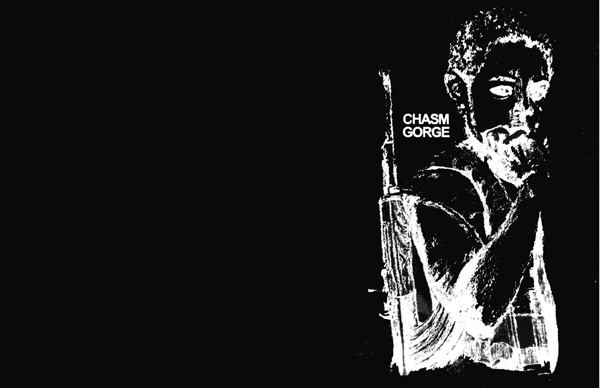
The terror is not over; it’s just begun.Perhaps I was too young when my new wife and I dared to enter for a prolonged time Idi Amin’s Uganda.
There are so many memories of that trip that have refused to stop terrorizing me: Three malnourished kids squatting over their distended bellies in the forest road behind my safari car, eyes bulging, waiting for my unforgivable negligence in dropping an opened can of tuna out of the car. They were on it before I could do anything, bloodying their fingers and tongues.
But often it’s what isn’t there which is the ultimate terror from hell.
We traveled to a boys boarding school in the southwest of Uganda near the Rwandan border, technically for graduation. But there were no boys. The 40 or so graduates had been executed by Amin’s soldiers hours before we arrived. Not only were there no boys, there were no hosts who planned to greet us. There were no idle goats destroying the soccer pitch. I don’t even remember a bird. Terror comes and goes but never disappears.
When I hear Israelis claim that they are going to “wipe out” Hamas, my heart sinks. It’s impossible. Degrading, yes. Retribution, yes maybe. But eliminating? Impossible.
Hamas has an infinite potential to lose. The good world has so much more to lose than its evil adversaries. Terror wins when terror begets terror.
After too much news tonight I found a copy of my 2013 novel, Chasm Gorge. It was really creepy that I randomly opened the book to the exact page I wanted. I’m shortening and editing it slightly below.
The book is about a young American who almost intentionally gets himself kidnaped by an African terrorist and in the quintessential Stockholm syndrome starts to become one, himself. Cassidy, the young American, has been held for some time by the terrorist, Tali, who has unspeakable plans for him. The passage begins as Tali is costuming Cassidy for a walk in the nearby market.
**
“You have accomplished much in these last few months,” Tali said as he wrapped Cassidy’s face with a desert scarf then pulled a military cap hard over his head to fasten the disguise.
They walked into the market like two officers just in from the bush with that typical saunter that distracts onlookers from their real identifies. Cassidy relaxed in moments like these, preciously a part of Tali’s secret world.
It was late in the afternoon. The market would soon close. The desert beyond was as still as death, but the voices of the villagers in the market, the bleating of goats and the clinking of cow bells reflected life going on. They walked to one old woman closing up her stall. Tali palmed a pomegranate in his giant hand as if to test its ripeness.
“Why do you kill?” Cassidy mumbled.
Tali replaced the fruit.
“Because if I don’t, I will lose. My people will lose.”
Cassidy hurried up to him for he had walked away so suddenly.
“You claim your people are the people of the world – “
”Of the oppressed,” Tali corrected him.
“But if they – if you succeed, and they are then no longer oppressed, are you saying you won’t become their oppressors?” He paused then added very softly, “The ones you have to kill?”
Tali didn’t answer, although his pace slowed and he looked into the sunset with an audible sigh. Cassidy didn’t wait long.
“How many…” but Cassidy couldn’t complete his thought and stumbled on instead, “before you can win, anyway?”
“The oppressed can’t lose,” Tali said mildly irritated. “I’ve already explained that.”
“Can’t lose?!” Cassidy guffawed. “To America’s firepower?”
Tali studied the boy for a moment, long enough that the anger in his harrowed face disappeared into the twilight. Then he relaxed, almost smiling as he looked at the boy before finally answering.
“You have watches,” he said. “But we have time.”
[The fantastic illustration of the boy soldier is by Sheila Haman.]